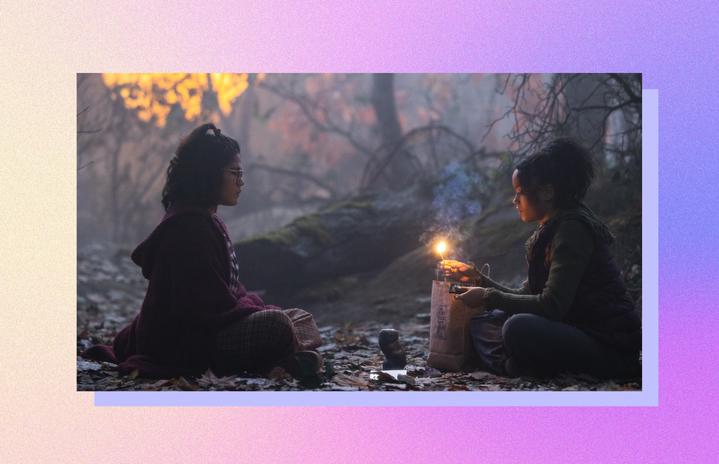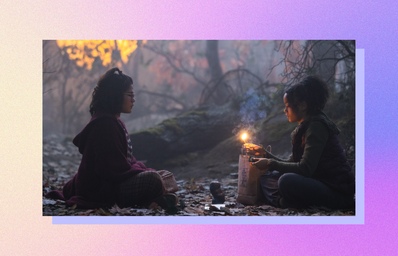Before college, my entire education took place in a very religious school: 13 long years of bible verses, prayers, and the promise of hell after any transgression. Luckily, I wasn’t raised in much of a religious household, but those years at school were quite enough. Around October, my fourth grade English teacher would assign us anti-Halloween arts and crafts projects—her hallway would end up covered, top to bottom, in little construction paper ghosts and jack-o’-lanterns crossed out with huge red Xs. She’d do that every year, with every class, and she always centered her lessons around the “history” of Halloween, naming it a holiday used to celebrate the devil.
Retrieved from Pinterest
Now, picture a little 9-year-old girl, dressed up as a fairy, having finally gathered the courage to go trick or treating at the mall, should’ve been fun, right? Wrong! My mom had at last convinced me to dress up, but I was terrified! I was so scared my school would find out because then they’d know I was going to hell (apparently?). Granted, I eventually grew out of that fear and have since dressed up for Halloween a few times, sans meltdown, but it’s still something that gnaws at me. So, why are Christians (generally) so against Halloween?
First off, Halloween originated from a Celtic festival, Samhain, which was held on November 1. This festival marked the separation between summer and winter, and as such, when the year turned from light to dark, the division between life and death became thinner, allowing for spirits to pass through. People would wear costumes and masks to ward off harmful spirits, hoping to confuse them by disguising themselves. Dressing up to ward off the spirits of the dead persisted as a custom when the Catholic Church claimed November 1 as All Saints’ Day in the 9th century, thus making October 31st All Saints’ Eve, or All Hallows Eve. Over time, and largely due to the Irish’s immigration to the United States in the mid-19th century, All Hallows Eve transformed into Halloween, the secular holiday as we know it today. In the 20th century, it became one of the primordial American holidays, especially among children.
Retrieved from Pinterest
Hence, it’s not too hard to grasp why many Christians might be opposed to celebrating Halloween, given its association with death and spirits. Some, like my teacher, even refer to it as a holiday linked to the devil, since they find it to be a day used to celebrate evil, darkness, witchcraft, and fear. The problem with this kind of thinking, though, is that fear is used as a tool to get children to “act right,” which is what eventually leaves a mark. Deciding to abstain from celebrating a holiday due to your own religious beliefs is perfectly okay, but I don’t think it is right to instill that kind of fear into children, thus tainting such innocent activities like dressing up and asking for candy at the mall.
Religious trauma is very real: growing up under such strict rules and beliefs can have a lasting impact on a person’s mental health, resulting in conflict between what they’ve been taught and what they believe. So, dear reader, if you’re like me and you still struggle with simple activities because of what you were taught as a kid, I see you, and you’re not alone. This October let’s try to embrace the fun, despite it all!


